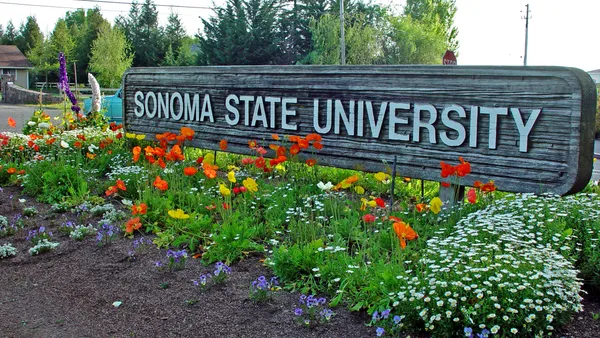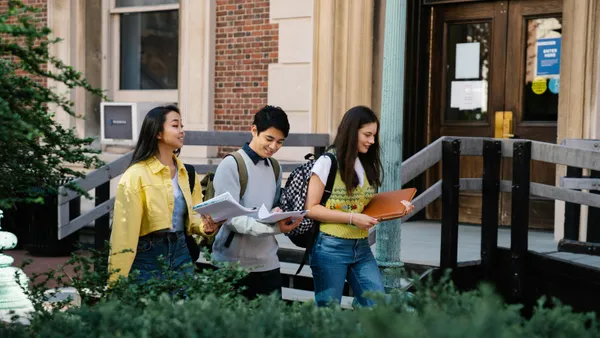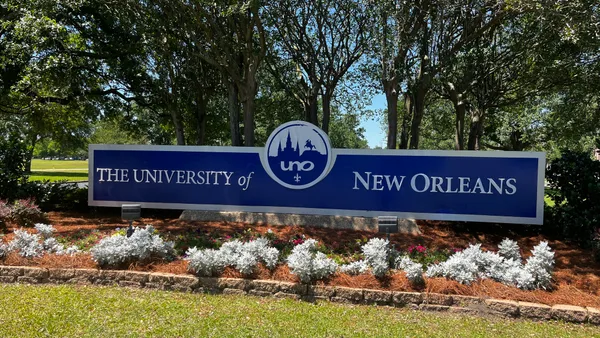Dive Brief:
- First-time graduate enrollment increased 1.8% in the fall of 2020 over the year before, while graduate applications rose 7.3% during that period, according to new data from the Council of Graduate Schools.
- According to the council's announcement, first-time enrollment of underrepresented minorities grew at a "healthy pace" between fall of 2019 and 2020. First-time enrollment increased the most among Latinx students at 20.4%, followed by Black/African-American students at 16% and American Indian/Alaska Native students at 8.8%.
- Increases in traditionally underrepresented students helped drive growth in domestic enrollment, which rose 12.9% year over year. International enrollment of first-time graduate students, meanwhile, plunged 37.4%.
Dive Insight:
The council's latest annual survey includes responses from 558 higher education institutions, which collectively enrolled more than 1.7 million graduate students. It bolsters previous data showing that graduate enrollment rose after the pandemic broke out while undergraduate enrollment suffered.
Total graduate enrollment rose 2.5%, driven by a 6.1% increase in domestic students. However, travel restrictions and other pandemic-related disruptions coincided with a 9.7% overall decline in international graduate students.
First-time enrollment saw a particularly large boost during the pandemic. Similar to previous surveys, the three most popular graduate fields were business, education and health sciences, which collectively represented 45% of first-time enrollment.
"Graduate schools had to pivot quickly as the pandemic disrupted traditional modes of instruction, increasing part-time, virtual and hybrid learning options," Council of Graduate Schools President Suzanne Ortega said in a statement. "To see continued growth in first-time enrollment rates during a global pandemic shows confidence in the value of graduate education and the importance of increased flexibility in delivery methods."
However, the gains were uneven across different sectors. While public colleges saw a 3% increase in first-time graduate enrollment, private nonprofit schools saw a 0.7% decline.
The report also compares the graduate application trends for the fall of 2020 with figures from the past decade. The application growth last year, of 7.3%, was much larger than the 2.5% average annual increase over the past 10 years.
Data from the National Student Clearinghouse Research Center showed similar trends last year.
It found that college enrollment was down 2.5% overall in the fall of 2020 compared to a year ago. Undergraduate enrollment dropped 3.6% during that period, while graduate enrollment increased by an equal percentage — partially offsetting those declines. A similar trend played out in the spring, with graduate enrollment rising 4.4% from the previous year.















